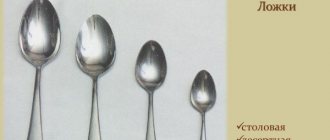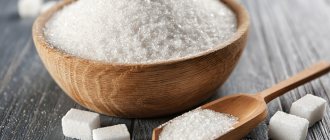How much sugar should I put in tea? The standard answer for most people is one or two spoons. This is how it was in our country ten to fifteen years ago. Now the picture is changing, and every day more and more people prefer to drink tea without sugar. Why? And tea without sugar: what is it good for? Let's try to figure it out.
Firstly, tea is now not just a drink that quenches thirst and brings neighbors together in the evenings.
A well-brewed cup of tea can bring many benefits to human health. But tea with various additives is quite tasty, but not so healthy.
Secondly, if you drink tea without sugar, you can lose weight and get rid of many health problems that are associated with excess weight.
But what if you absolutely cannot do without sugar? Can I use different sugar substitutes? What about those who prefer to drink tea with milk, lemon or honey? We will answer these questions in our article.
Tea without sugar: benefits
Changing habits developed over the years is very difficult. What is important here is incentive and receiving
certain benefit. Let's highlight the three main benefits of drinking tea without sugar:
- Energy without borders! You think that a cup of tea with sugar gives you energy. This is a misconception. That is, energy is, of course, produced, since along with sweet tea, a high glucose content suddenly enters the body. But the effect does not last long, only 10-15 minutes. Then the blood sugar level decreases and the reverse process occurs. Pleasant excitement is replaced by lethargy and irritability. It is important to emphasize here that real tea, brewed properly, can tone you up without any additives. Tea contains tannin, which improves digestion processes and saturates the blood with essential vitamins and microelements. Regular consumption of tea without sugar has a beneficial effect on our body.
- Weight loss. Quite a powerful incentive for people seeking to lead a healthy lifestyle without extra calories. The calorie content of tea without sugar is zero, but the dependence on sweets is quite strong. Having received additional glucose along with a glass of tea, our body begins to demand more and more. A candy, a sweet bun, then another mug of sweet tea and you can’t stop. Does tea without sugar count as water? Many people think that tea without sugar is not tasty, and that extra liver can give it the desired taste. This is fundamentally wrong, since it is sugar, milk, lemon, and baked goods that prevent you from tasting real tea. Only by refusing to drink sweet tea will you be able, over time, to experience its true aroma.
- Skin and digestive health. If you stop drinking tea with sugar, your digestive system will be very grateful. Metabolism will improve and stool will normalize. As a result, the condition of the skin will improve.
You may be interested in: Liver tea: cleanses, heals, restores
Glycemic index table
The glycemic index (GI) is a measure of the rate of change in blood glucose levels after consuming a particular food. The faster the blood glucose level rises, the more insulin is released in the body. One of the functions of insulin is the deposition of fat reserves. Sharp jumps in insulin prevent carbohydrates from being stored in the muscles in the form of glycogen. Instead, the nutrients will be stored as fat on your belly, thighs, or buttocks.
In other words, the higher the glycemic index of a product, the more likely it is that the food eaten will not be used to replenish energy or nourish muscles, but will go to fat.
How to find out the glycemic index? It has long been designed for most staple foods. You can find out the GI from special tables. Glucose is taken as the standard; its glycemic index is 100. The glycemic index table will help you easily determine the GI of the desired product.
How and what to replace sugar in tea
Let's divide sugar alternative products into two groups: artificial and conditionally natural.
In stores on shelves for diabetics you can find
- Saccharin (food additive E954)
- Cyclomat (food additive E952)
- Aspartame (sweetener E951)
- Acesulfame (food additive E950)
- Milfort (available in tablets or liquid form)
There are other artificial sugar substitutes. What can you say about their use? Synthetic additives are much lower in calories, but almost 300-500 times sweeter than sugar.
Most often they are found in chewing candies and gum, in light carbonated drinks, and in some “diet” baked goods. The use of such supplements is attractive for those who like to count the carbohydrates they consume and indulge in sweets. They no longer provide any benefit, while the harm to the body can be quite significant.
I don’t want to scare you with the numbers of studies conducted on the development of cancer with long-term use of nutritional supplements of this kind. Let's just say that some of them are already prohibited for use in developed countries.
Conditionally natural sweeteners include:
- Fructose. In small quantities, it does not increase sugar levels immediately after consumption. However, if consumed in excess, it can cause obesity and heart disease due to its high calorie content.
- Xylitol and sorbitol. In industrial production, these additives are obtained from corn cobs and deciduous tree wood. The consumption rate of sorbitol and xylene should be established by the doctor, depending on the characteristics of the patient’s body. In large doses, these products can cause a variety of gastrointestinal disorders.
- Stevia is a popular product in South America, which is extracted from the leaves of the plant of the same name. The biggest plus is zero calories and no side effects from consumption. So, if the price and taste of the product satisfy you, you can use it as a sugar substitute.
- Agave, syrup release form. If the dose is exceeded, significant disturbances in the functioning of the nervous system can occur. It is not always natural; chemical compounds are used in production.
- Honey. Suitable for people who do not suffer from allergic reactions. There is a lot of controversy regarding the use of honey in a heated state (which is what it most often becomes in tea). If you drink tea with honey, it is better not on a regular basis.
You may be interested in: Tea with milk for weight loss, rules for fasting days
Calorie content of tea without sugar per 100 g
There are many varieties of tea:
- black,
- green,
- hibiscus,
- herbal,
- fruit,
- sea buckthorn
Of course, these are not all types of tea; white, mate, oolong, pu-erh and others are no less tasty and healthy.
Black tea
The taste of black tea is rich and deep. Black tea is made from Camellia sinensis. During the production process, tea loses some amino acids and vitamins. But most of the substances still remain. But fermentation saturates the tea with thearubigins - giving the tea a tonic effect, making the taste rich, tart, and theaflavins - giving the tea a fresh and clean taste.
Keep in mind that strong drink can increase your blood pressure. Hypertensive patients should be careful.
For people with low blood pressure, this is a good way to stay in good shape. A cup of black tea contains 8 kcal. Black tea contains antioxidants, polyphenols, flavonoids, L-theanine and caffeine, thanks to which the list of healing properties of black tea is quite large:
- cancer prevention;
- normalization of the gastrointestinal tract;
- reduction of bad cholesterol;
- positive effect on the functioning of the cardiovascular system;
- increased attention;
- lowering blood sugar levels (naturally, tea should be without sugar).
Green tea
It has a milder taste than black. These varieties are considered by many to be a panacea. This opinion is not without meaning, since the method of processing green tea allows you to preserve the maximum amount of vitamins and nutrients. Experts recommend drinking no more than 3 cups per day. One cup of green tea contains 2 kcal. Green tea contains: vitamins A, C, B, P, F, zinc, fluoride, calcium, potassium, magnesium, iron, as well as caffeine and L-theanine. Such a rich composition allows us to highlight the important properties of tea:
- acceleration of weight loss;
- prevention of cancer;
- maintains oral health, eliminates unpleasant odor;
- stimulation of brain activity;
- reducing the risk of developing diabetes;
- prevention of cardiovascular diseases;
- slowing down aging.
Red tea or hibiscus
Made from hibiscus (a shrub with large, bright flowers). The drink is unique for its bright taste and high content of vitamin C. 200 ml of this tea contains a little more than 9 kcal. Tea is used as a diuretic and as an aid for diseases of the heart and nervous system. Hibiscus has long been used to reduce body temperature. This miracle drink can lower blood pressure and alleviate the symptoms of colds. Hibiscus is considered a harmless drink, since, unlike other varieties, it does not contain caffeine.
Herb tea
Widely known for its beneficial properties. Each type of herbal tea should be considered separately, as different plants have different properties. Its calorie content is low - 2 kcal per 200 ml. The most popular components of herbal tea are mint, lemon balm, thyme, oregano, St. John's wort, raspberry leaves and berries, etc.
Herbal tea is used for weight loss, strengthening the immune system, and removing toxins. Tea can soothe or invigorate, depending on the variety chosen. It is advisable to choose this tea based on its composition. Not all herbs have a pleasant taste, so it is often supplemented with various additives, for example:
- spices (cinnamon, ginger, cardamom, anise, etc.);
- flowers (amaranth, lavender, calendula, clover, etc.);
- zest (lemon, orange, lime, etc.);
- pieces of fruit (strawberries, raspberries, pears, apples, etc.).
Thanks to the bright additives, this tea looks beautiful in a transparent teapot.
Fruit tea
Strengthens the body, immunity, and has a positive effect on the functioning of the digestive system. This tea reduces appetite and is also low in calories, only 2 kcal per cup. Like herbal tea, fruit tea has an abundance of varieties. Depending on the fruits used in it, it has various beneficial properties.
Sea buckthorn tea
Rich in vitamins and minerals. Sea buckthorn tea is indispensable during colds and flu. This wonderful drink has a rich, bright taste. Sea buckthorn contains many microelements necessary for our body:
- magnesium,
- iron,
- aluminum,
- silicon, etc.
This berry also contains a large amount of vitamins: carotene (A), flavonoids (P), thiamine (B1), tocopherol (E), unsaturated fatty acids (P), vitamin C, etc.
Tea strengthens joints, stimulates cardiac activity, and promotes tissue regeneration. Tea lowers blood pressure, relieves pain and has an anti-inflammatory effect.
Can I drink tea with milk?
For the first time, milk was added to tea at the court in Great Britain. Fearing that the fragile porcelain cups would crack from the boiling water, the English courtiers began filling them with milk, to which they later added tea. The English nobility liked the aromatic, not hot drink so much that its fame spread throughout the world.
Beneficial properties of milk tea
- Milk reduces the effect of tannin on the human body. Tea is less invigorating and can be drunk more often, regardless of the time of day.
- Tea enhances the absorption of milk proteins and calcium.
- Tea with milk has a positive effect on the gastric mucosa.
- Drinking warm tea with milk enhances lactation in nursing women.
Composition of classic black tea
Dry brewed black tea has a rich composition. When preparing a hot drink, a significant part of the substances dissolves in water and enters the infusion, enriching it with beneficial properties.
Black long tea contains:
- Catechin and epicatechin give the drink a bitter, slightly astringent taste. They have antimicrobial properties and strengthen the walls of blood vessels.
- Caffeine has a stimulating, invigorating effect on the body of a healthy person.
- Vitamin B2 (riboflavin) – takes part in the redox reactions of the body; has a positive effect on the functioning of the heart and liver, improves skin condition, increases color sensitivity, and adapts visual perception in twilight and darkness. Vitamin B2 deficiency is accompanied by impaired twilight and light vision, deterioration of the mucous membranes and skin.
- Vitamin C – promotes the absorption of iron and improves the functioning of the immune system;
- Vitamin PP – takes part in the processes of energy metabolism. A deficiency of this vitamin can lead to disruption of the skin, nervous system, and deterioration of the gastrointestinal tract.
- Iron (Fe) – is part of the blood and tissues of the body and is involved in the transport of oxygen. Lack of iron leads to increased fatigue and disruption of many body systems.
- Magnesium (Mg) – takes part in the synthesis of proteins and nucleic acids, as well as in energy metabolism. The lack of this substance negatively affects the functioning of the cardiovascular system and can lead to increased fatigue and irritability.
- Phosphorus (P) – is involved in energy metabolism and many other physiological processes. Essential for saturating teeth and bones with essential minerals.
- Potassium (K) – is involved in many vital processes of the body, including the regulation of water and acid balances, blood pressure regulation, etc.
- Calcium (Ca) - takes part in muscle contraction, is the basis of bones and teeth, and acts as a regulator of the nervous system.
All these substances can enter the body when drinking regular black tea. At the same time, a standard mug of drink (without additives) contains only about 10 calories.
Possible harm of milk tea
The main harm of milk when added to tea is that the beneficial properties of the tea are lost.
- For example, it is known that tea is an excellent antioxidant. Substances contained in tea can slow down cell aging. Milk protein (casein) suppresses this beneficial property of tea by about 80%.
- Also, when milk is added, tea ceases to have a relaxing effect on the body and does not dilate blood vessels.
- When drinking tea with milk without sugar, the calorie content increases and fat burning does not occur.
Should you drink tea with lemon?
Another popular addition to tea is lemon slices. Of course, the beneficial substances contained in lemon have a very beneficial effect on the body. For colds, citrus fruits rich in vitamin C, when combined with hot tea, can significantly increase the body's resistance. In addition, adding lemon to tea significantly increases the amount of catechins, which in turn increases the antioxidant properties of tea. It is recommended to drink tea with lemon for liver diseases, urolithiasis, and low blood pressure.
If you drink tea with lemon without sugar, the calorie content will not change significantly. Citric acid also promotes the breakdown of fats in the body and enhances metabolism. Therefore, lemon tea is suitable for consumption in any diet.
Tea with lemon is contraindicated for people suffering from:
- allergies to citrus products;
- increased acidity;
- glaucoma;
- stomach ulcer.








